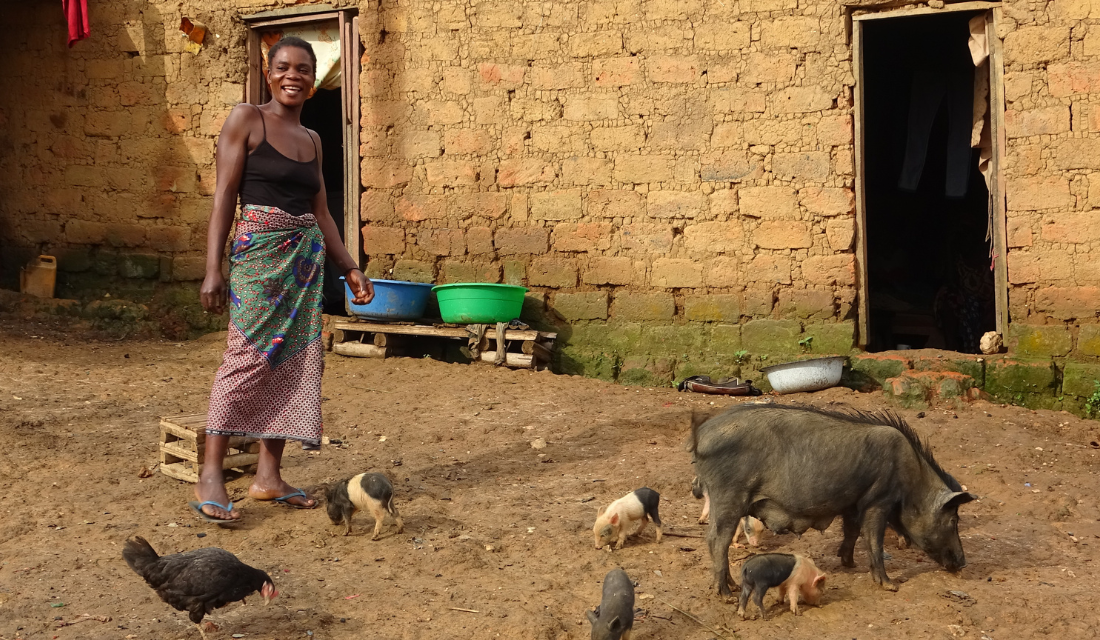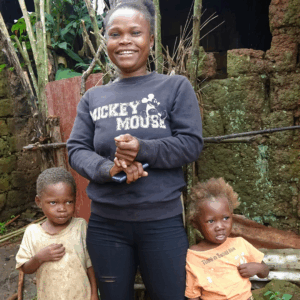An Investment in Rural Women is an Investment in Long-Term Resilience

“I’m a lifelong resident of the Banza Quinguanga community,” Laura said. “Farming has always been my main source of income.”
Around the world, women play a vital role in the agriculture sector. In many of the rural communities Episcopal Relief & Development serves, they work alongside men in the fields, cultivate home gardens and raise livestock. They do this to feed their families, generate income for essential household needs and support the development of their communities. In Angola, women small-scale farmers like Laura power the agricultural sector–over 60% of the country’s agriculture labor force are women.
Farmers in the area, both men and women, face serious climate-related challenges like increasingly hard-to-predict weather patterns and severe weather events such as droughts and flash flooding. Small-scale women farmers face additional challenges including lack of access to and control of finances, land, livestock and information about farming techniques adapted to address climate change.

Through our partnership with the Anglican Church of Angola, the Diocese of Cristo Rei, Episcopal Relief & Development equips and supports farmers in rural communities to build climate and economic resilience. During 2023 and 2024, women accounted for over 61% of program participants.
“I am one of the first participants of the livestock breeding training,” shared Arminda, a resident of the Sassa community. “I’m very happy–it’s a win.”
Arminda, Laura and other farmers from the country’s northwest region were supported to pursue opportunities in livestock farming and animal husbandry. While both women worked in agriculture their whole lives, livestock farming was new territory.
“As part of the program, I received a couple of pigs,” Arminda said. “I’ve been taking good care of them according to the training and coaching from the group supervisor. My animals have reproduced and I already have 6 piglets. That’s a total of 8 animals under my control.”
With the money she earns from the new animal breeding venture, she can purchase necessities like food, clothes and school supplies for her children with some remaining to reinvest in growing her entrepreneurial venture.
“The earnings will help me acquire seeds for the gardening that I also carry out,” she explained. “In the future, I plan on being a supplier of animals to meat sellers.”
“It’s my way of showing love and spreading the impact of this program.”
– Laura
In the neighboring Banza Quinguanga village, Laura and members of her community participated in the same climate resilience program. She reported similar success and optimism for the future.
“During the first breeding cycle,” Laura said, “one of my pigs gave birth to 6 piglets.”
In community-led Savings with Education groups, participants contribute to a loan fund. Loans are paid back with minimal interest. At the end of a loan period, investments are redistributed to members so that everyone makes a small profit. Inspired by the program’s strong emphasis on community-building, Laura went above and beyond her group’s requirements.
“Following the program’s guidelines, I returned 3 of the 6 piglets to my group so that other members can benefit,” she said. “I also decided to give one of my female pigs to a woman from a neighboring community, someone who wasn’t a program participant.”
Episcopal Relief & Development and our partners believe in the power and potential of rural women to be leaders and changemakers in their communities–and beyond.
“My idea is that she will raise the pig,” explained Laura, “and once it reproduces she will share the offspring with someone else. It’s my way of showing love and spreading the impact of this program.”
Learn more about how Episcopal Relief & Development partners to strengthen rural livelihoods around the world.


